Queensland doctor exodus as complaints surge
Startling national statistics showing a 10 per cent increase in actions against Queensland doctors and health care workers over the past year are being blamed for GPs quitting the profession.
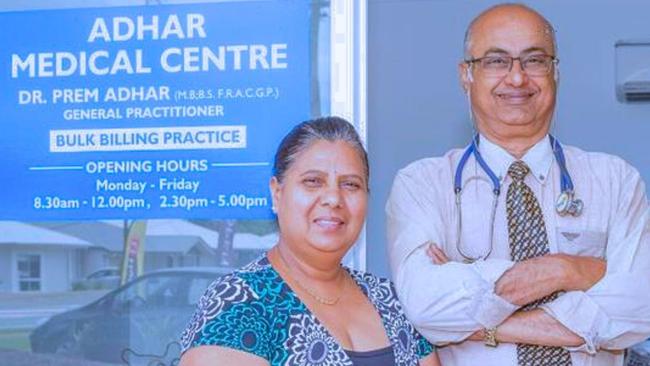
QLD News
Don't miss out on the headlines from QLD News. Followed categories will be added to My News.
Startling national statistics showing a 10 per cent increase in actions against Queensland doctors and health care workers over the past year, are being blamed for an exodus of general practitioners from the profession.
The bayside community of Redland Bay will be left without a bulk-billing GP taking on new patients after long-time doctor Prem Adhar retires on Friday, citing mounting stress from the possibility of litigation and increasing regulations.
His retirement follows the latest data from the Australian Health Practitioner Regulation Agency which reveals a 6.2 per cent jump in cases about Queensland doctors referred to the Office of the Health Ombudsman for further assessment.
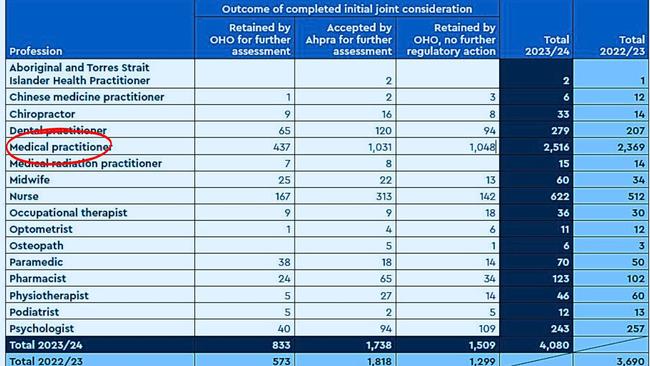
The Ombudsman had an extra 147 complaints about Queensland doctors to investigate over the past year, up from 2369 to 2516.
However, there were 1048 cases against medical practitioners in Queensland that were dropped without further regulatory action required, with doctors claiming the trend suggested a growing volume of vexatious complaints.
Nationally, the rise in complaints resulting in no further regulatory action was a lot higher and accounted for one of the most notable changes from 2023 to 2024, according to the report.
There were 5280 national cases dropped in 2022/23, or nearly half of the 10,659 complaints lodged, compared to 6129 cases dropped in 2023-24 when 54.9 per cent of all 11,156 cases were closed without further action required.
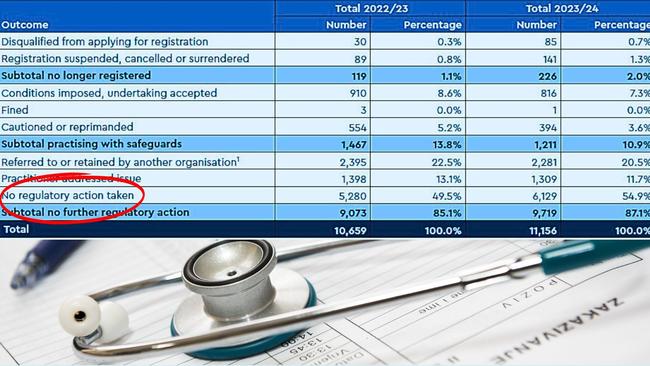
The number of complaints to AHPRA from people concerned that vexatious notifications had not been picked up rose from 14 in 2022 to 44 in 2023 and 73 complaints in 2024.
The national statistics also revealed the number of practitioners disqualified from applying for registration rose from 30 in 2022/23 to 85 in 2023/24, representing a rise from 0.3 per cent to 0.7 per cent of those registered.
The significant increase in the severity of disciplinary actions taken against practitioners put mounting pressure on GPs, with doctors, including Dr Adhar, deciding to leave the profession.
The trend was also outlined in the National Health Practitioner Ombudsman annual report tabled this week.
Although the NHPO report found AHPRA had made steps to improve health practitioners’ experiences throughout the complaints process, it also found instances where the process had been drawn out to the detriment of a doctor.
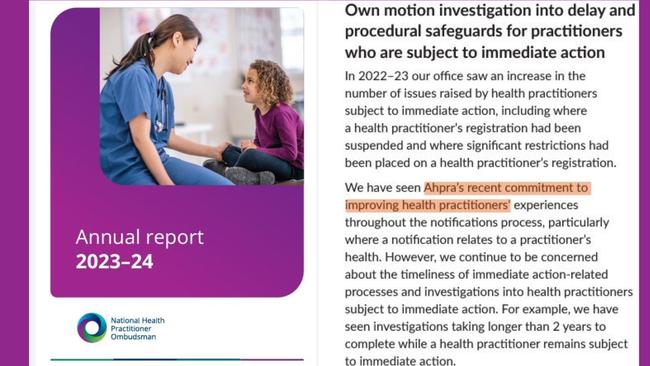
“We continue to be concerned about the timeliness of immediate action-related processes and investigations into health practitioners subject to immediate action,” the NHPO report said.
“For example, we have seen investigations taking longer than two years to complete while a health practitioner remains subject to immediate action.”
The Redland Bay GP said the fear of patients taking possible action had caused him, his staff and family stress and led to his ultimate decision to call it quits on December 1.
Dr Adhar, a well-respected medical practitioner with more than three decades of service, said the growing trend of notifications across the country and the complex interplay between the Office of the Health Ombudsman and the Australian Health Practitioner Regulation Agency and the Professional Services review Board, led to his decision.
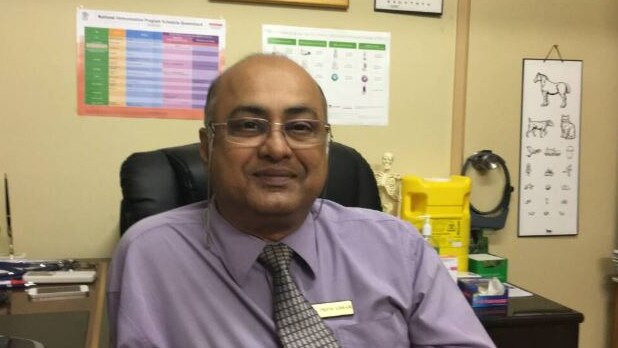
He said like many of his colleagues, he had found the complaints consideration process to be increasingly worrisome.
“It’s not just the time taken to resolve these issues – it’s the constant fear and uncertainty that hangs over you,” he said.
“Every day, you’re wondering if a notification will come through, what it will mean for your practice, your reputation, and your livelihood.
“Even if a practitioner is eventually cleared, the process itself is harrowing and the constant threat of investigation has made it difficult to focus on patient care.”
Royal Australian College of General Practitioners Queensland former president Dr Bruce Willett said the problem of doctors leaving the profession was not isolated to Queensland and pointed to a national increase in disciplinary actions and complaints.
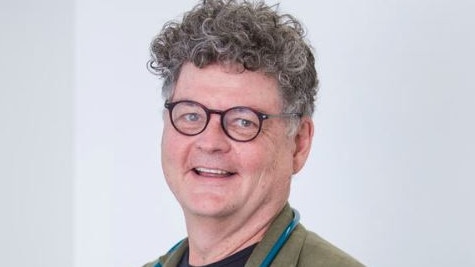
“The rate of complaints against medical practitioners has been growing by 10 to 15 per cent annually,” he noted.
“This extraordinary rate suggests that something other than poor practice is at play.
“These complaints often take up to a year to be dismissed, even when they are frivolous, adding to the stress and burden on doctors.
“Many doctors, especially those involved in bulk billing, are being forced out of the system. “The departure of a GP in Redland Bay leaves a significant gap in affordable healthcare for the community.
“There needs to be a balance and while it’s essential to weed out genuinely bad practitioners, the current system seems to be driving good doctors away due to the sheer volume and nature of complaints.
“Being a doctor is deeply tied to one’s identity and when complaints arise, it’s not just about professional competence — it’s a personal attack, leading many to leave the profession prematurely.”
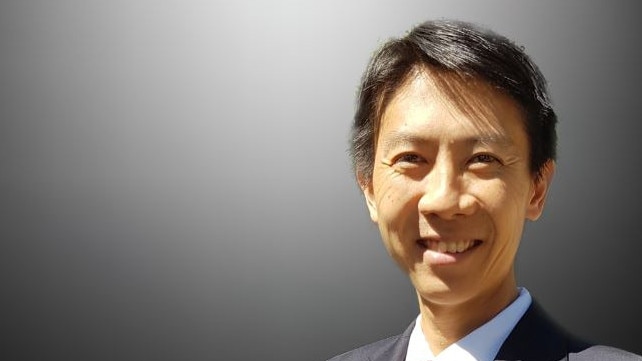
Australian Medical Association Queensland president Nick Yim said doctors needed to be protected from frivolous and vexatious complaints.
Dr Yim said AMA Queensland supported a strong regulatory system to protect patients and the community and all breaches in health care standards must be investigated and the appropriate action taken.
“At the same time, doctors and other healthcare practitioners deserve to be shielded from frivolous or vexatious complaints,” he said.
“Since Covid, we have seen a rise in notifications about all healthcare practitioners, and an increasingly vocal section of the community who are anti-vaccination and sceptical about proven medicine and science.
“Complaints are very stressful to healthcare practitioners, which is why the regulator must work with the practitioner in a timely manner to resolve these complaints.”
Dr Yim said the health workforce was under-resourced and under pressure and a recent Resident Hospital Health Check found 50 per cent of junior doctors were already feeling some level of burnout.
He said improving the workforce was AMA Queensland’s number one priority and he would work with the new state government to build the workforce, reduce ambulance ramping and elective surgery wait lists, and implement evidence-based policy.
The current Royal Australian College of General Practitioners Queensland chair Cathryn Hester said receiving a notification was always a stressful event regardless of whether it had any basis.
“When the resolution takes years, that only adds to the stress and this can be enough for practitioners to leave their work which is a terrible outcome for the GP and the community,” she said.
“Increases in vexatious reports to the regulatory bodies only increases the stress to GPs and also slows down the investigations into other cases because of the increased workload.
“I would stress the importance of dealing with practitioners in a compassionate and timely manner to minimise the stress.”
More Coverage
Originally published as Queensland doctor exodus as complaints surge





